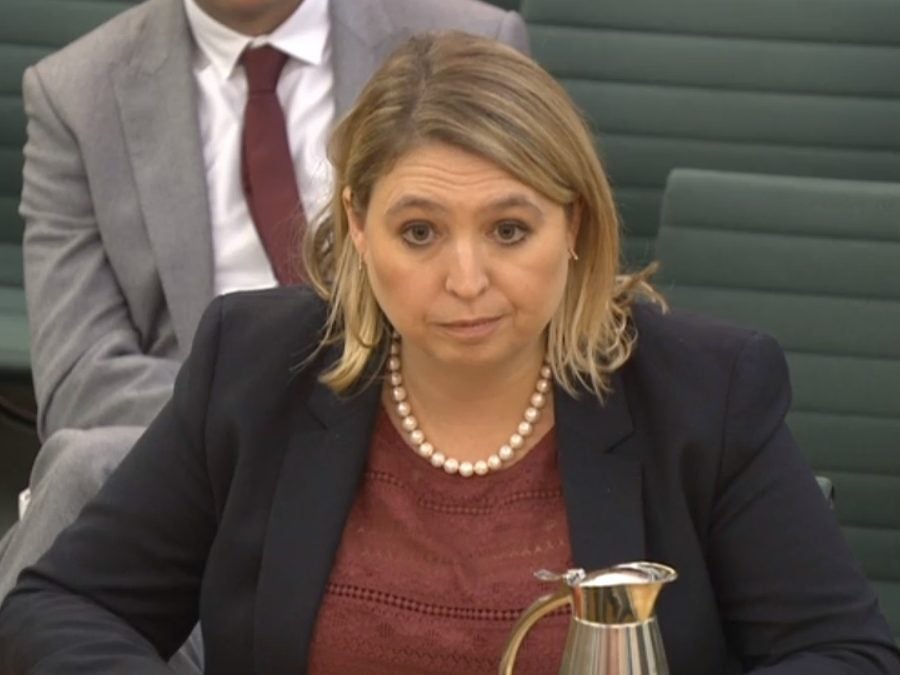
Culture Secretary Karen Bradley has hailed the internet a “force for good” as she warned against using heavy legislation against online platforms such as Facebook.
Bradley faced questions from members of the Digital, Culture, Media and Sport Committee over her department’s new Internet Safety Strategy, launched today.
The Conservative MP for Staffordshire Moorlands told MPs the status quo on internet safety was “not good enough”.
News articles in recent months have exposed the ease with which harmful content can be found online while cyber-bullying has been a growing issue on social media in particular.
Bradley said: “It’s quite clear that that there has been unacceptable behaviour and it should be the case that what goes on on your computer screen should be no different from the way someone would behave to you if they met you in the street.”
But, she added: “We need to be careful here that what we do is not a sledgehammer to crack a nut piece of legislation where we say under UK common law these platforms are now publishers, which could impact on freedom of speech, civil liberties and the ability of people to enjoy the benefits that the internet brings. But we have to do this in a way that doesn’t allow harm.”
Bradley said the government was “looking at” the German legislative model, which gives the country powers to fine online platforms that don’t act quickly enough to remove harmful content.
But she said: “We have to be very careful, we can’t just take what one country has done and do it.
“We can’t put the genie back in the bottle. The internet is there, it exists, there are things going on on the internet, some of which is like the Wild West, and that’s why we need to do things like the Internet Safety Strategy and we need to work with like-minded partners and communities and the internet companies themselves to get to the right result.”
Bradley also faced questions from MPs on her decision to refer the proposed £11.7bn takeover of Sky by 21st Century Fox to the Competition and Markets Authority (CMA) on both media plurality and broadcasting standards grounds, against advice from broadcast regulator Ofcom.
Bradley said her decision was “very much based on the evidence”, adding: “It isn’t based on my personal emotion of feelings or views about anybody involved.
“I have to be mindful of the fact that there are two parties who would like to merge for good commercial reasons while at the same time I’m cognisant of the obligations for media mergers in Enterprise Act about ensuring that the public interest tests are met to make sure we continue with a media that works for the country.”
Asked why she had changed her mind on referring Rupert Murdoch’s Sky bid for further scrutiny on broadcasting standards grounds, Bradley said she did so after receiving “substantive” new pieces of evidence that said the threshold applied by Ofcom for referral had been “too high”.
She said: “The legal advice I received was that actually that lower threshold did give cause for concern [on broadcasting standards].”
Bradley also said she wanted to make sure there was “complete confidence in whatever decision is taken, by all parties and all interested people” in pushing for a full investigation by the watchdog.
She said she was aware that she “may end up in a court of law at any time on this matter” and wanted to be able to give a response that “justifies” the decision she had taken.
The Conservative MP also faced a grilling on her Section 40 consultation, the results of which she said were due out “shortly”, nearly a year after it launched, although she did not specify a date.
Bradley dodged questioning on whether she had a part in the Conservative election manifesto’s pledge to repeal Section 40 – which would force publishers not signed up to a Royal Charter press regulator to pay both side’s legal fees in a court battle, even if they win, once enacted.
She said: “I don’t think it would be appropriate for me in my capacity as Secretary of State for Digital, Media, Culture and Sport to comment on what went on internally within [the] party putting together a manifesto.”
Bradley denied that the manifesto had been written before the consultation had finished, and added: “I’m not going to get drawn on how the manifesto was drawn up or otherwise.”
Picture: ParliamentTV
Email pged@pressgazette.co.uk to point out mistakes, provide story tips or send in a letter for publication on our "Letters Page" blog
